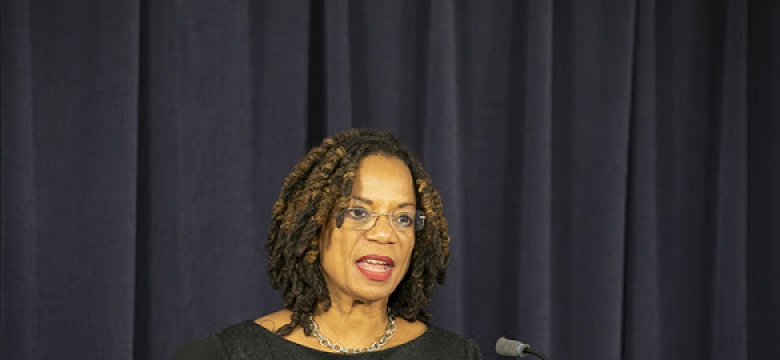
REMARKS BY: The Minister of Health The Hon. Kim Wilson, JP, MP,
Today, I would like to discuss vaccine preventable diseases, and the importance of getting vaccinated, particularly in the setting of the current active flu season.
Immunization is vital to public health and it is a priority for the Ministry of Health . . . we must protect our population against vaccine-preventable diseases. This is very important for Bermuda and an integral part of communicable disease control world-wide.
Many diseases are preventable through vaccines, yet despite steady progress in the 20th century in preventing death and sickness from infectious diseases through vaccination, the 21st Century presents new threats from old diseases as a result of the growing resistance to getting immunized.
In fact, the World Health Organization has ranked the growing resistance to widely available lifesaving vaccines as one of the top 10 health threats in the world for 2019.
It is important to note, that many diseases have become rare in the region and in high income countries because of immunization, which is encouraging. However we must not become complacent.
While most people are aware of the benefits of vaccination and prevention of vaccine preventable diseases (VPD), many have questioned the value, based on misinformation and misconceptions, inaccurate published reports, non-scientific social media posts and all sorts of anti-vaccination stories.
Choosing not to vaccinate against preventable diseases has resulted in a return of diseases we thought the world no longer had to fear: Polio, Diphtheria and Measles in particular are an increasing threat.
If Bermuda is to remain safe from serious illnesses, everyone must get the facts about vaccine safety and the need to protect themselves, their families and the community against those diseases. This includes early immunisation of infants and completion of the full schedule of vaccinations up to and through adulthood.
Vaccines do work . . . they are safe and effective, and necessary in preventing certain diseases.
Vaccines against Polio, Measles, Mumps, Rubella, Tetanus, Influenza, meningitis and so forth have been proven safe and effective over many decades of use.
The risk of having a significant side effect from a childhood or travel immunization is exceedingly small yet vaccines prevent 2-3 million deaths a year around the world.
Currently, we are in the midst of flu season and there is a rise in numbers and in the severity of flu cases recorded on the island.
I cannot stress enough how important it is for the public to protect themselves from the flu with vaccination, especially children, the elderly and those with chronic medical conditions. These persons are strongly advised to seek medical attention early if you have flu-like symptoms.
Typical symptoms are fever (usually over 100.4 degrees F, 38 C), headache, chills, cough, sore throat, runny nose, body aches, feeling very unwell and tired. All individuals with flu-like symptoms should stay home from work and school until at least 24 hours after fever has ended.
The Flu vaccine can keep you from getting flu, can make flu less severe if you do get it, and can keep you from spreading flu to your family and others, especially new-borns and young infants, children, seniors, and persons at risk of complications from the flu. Having the flu vaccine can help reduce time taken off from work or school due to flu.
Bermuda is also at risk for a return of Measles due to current outbreaks in nearby regions, particularly in areas of North America and Europe.
I strongly encourage people who choose not to vaccinate to protect themselves or their children from preventable diseases, to find reliable, scientifically sound information, and to distinguish fact from fiction.
The Ministry is concerned about the influence of non-scientific information and hearsay which causes some to resist the idea of vaccination. We refer to this as “vaccine hesitancy”.
To this end, the Department of Health is working with its stakeholders in a collaborative effort to address vaccine hesitancy in the community. We have put together a working group to explore vaccine hesitancy, and further details of activities will be forth coming during Vaccination Week in April.
By skipping vaccinations, you are endangering your own and others’ health. By getting vaccinated you are protecting yourself. You are also protecting your family, friends, colleagues and the larger community.
I feel strongly that if we all choose to get vaccinated against all vaccine-preventable diseases we will protect ourselves and our children from diseases we should no longer be worrying about.
